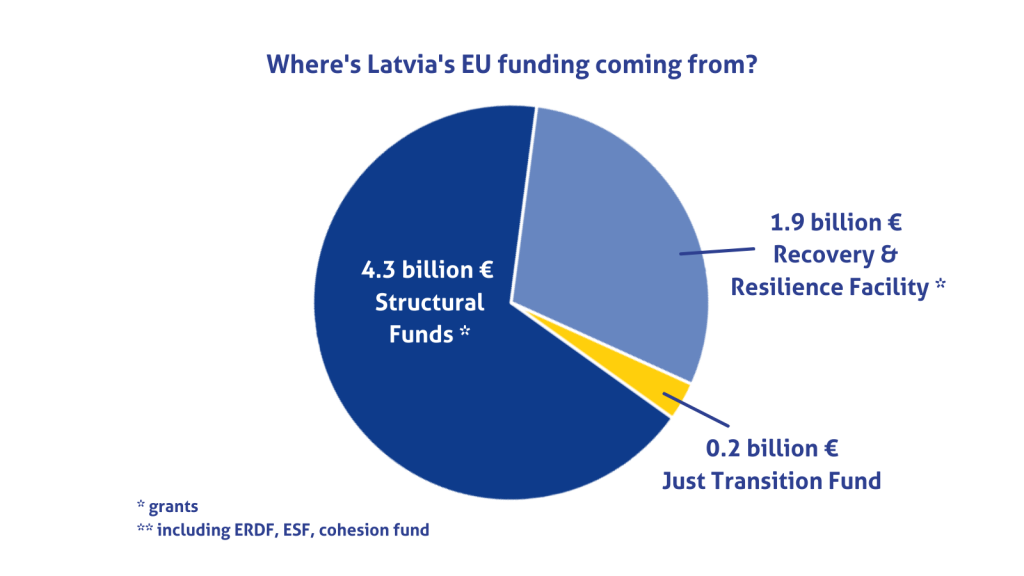Fresh EU cash could have been a great stimulus to boost Latvia’s largely underdeveloped wind energy sector. The Latvian government seems blind to the country’s untapped wind potential, and may turn the Cohesion and Recovery funds into a missed opportunity.
In a nutshell
- Despite having a great potential, the wind energy sector in Latvia is largely underdeveloped
- According to Latvian government’s intentions, not a cent of EU cash will go to onshore wind
- Developing onshore wind would be a foolproof way to grow the renewable energy share in Latvia and reduce reliance on fossil gas
Details
Not a single new wind power plant has been installed on Latvian land in the last 8 years. This is definitely not because Latvia lacks wind; on the contrary, the country sits on an untapped theoretical wind power potential of up to 1000 MW. At present, however, the total installed capacity is 78.6 MW, and wind energy constitutes a mere 2% of electricity produced in Latvia, which is the third lowest share among EU countries.
The development of the Latvian wind energy sector faces various barriers. Part of the struggle is related to the absence of a comprehensive plan for the development of the energy sector in a climate-neutral future. Part of it is related to regulatory barriers, which at present limit substantially the use of land for wind farm deployments.

Source: European Commission
The EU funds present the chance to turn the tide, by removing such regulatory barriers and providing the EU cash needed to expand the wind energy sector. Unfortunately, Latvia is not seizing this opportunity. Neither its draft Operational Programme nor the current Recovery plan include any support for the development of wind energy, which would be key to increasing the share of renewables in the country.
With a few exceptions, the Latvian Recovery plan looks like it’s patching the holes of funding in various sectors, rather than introducing substantial reforms that would set the country on a clear path towards climate neutrality. And it looks like a missed opportunity to decrease its overdependence on 100% imported fossil gas.







